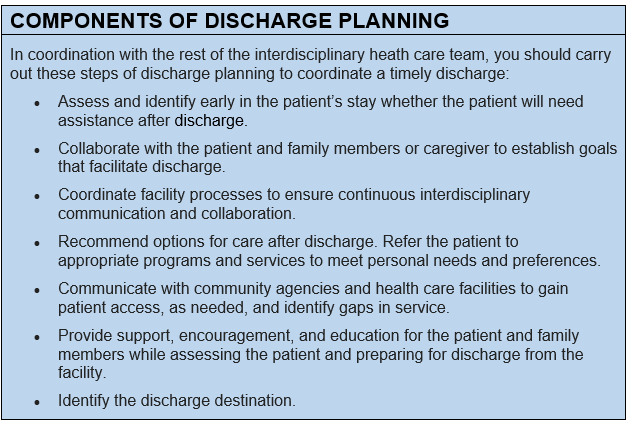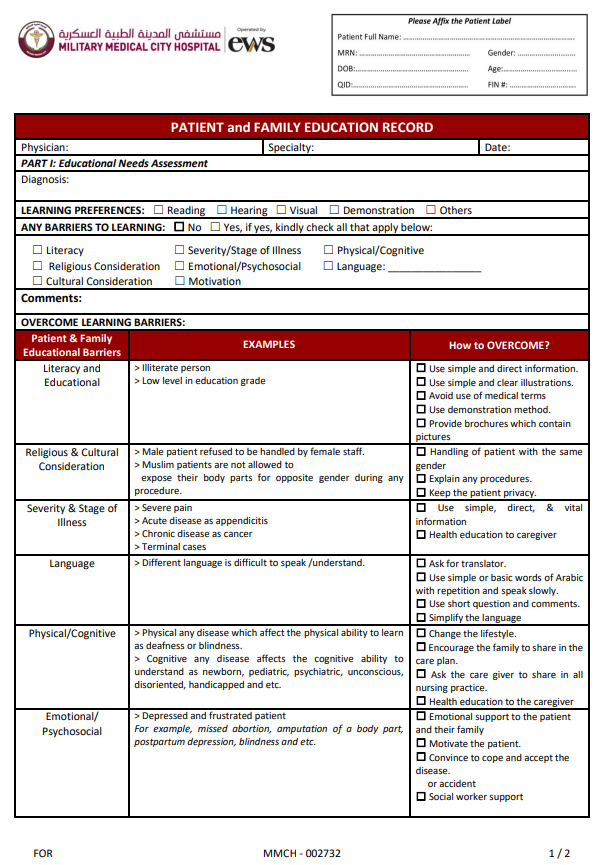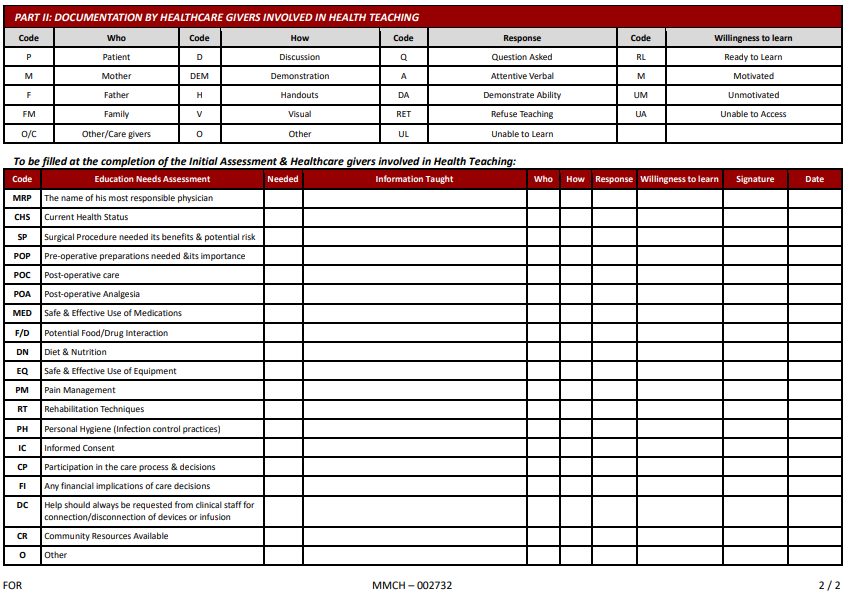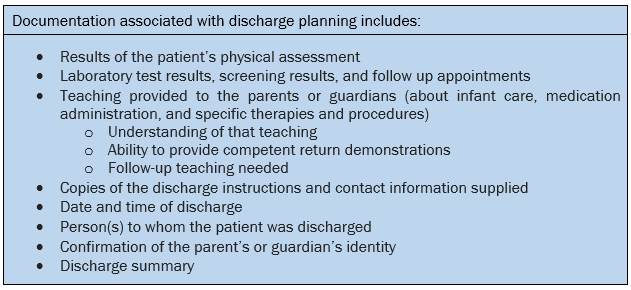Discharge Planning and Education for Parents/Caregivers
Discharge planning for an infant is a process that begins at admission and continues until discharge. The goal of discharge planning is to decrease the risk of readmission. A safe, successful transfer to the home after a hospital stays requires a coordinated effort involving the entire care team. Nursing considerations include providing education throughout the infant's hospitalization at the family members' level of education and understanding and according to their assessed learning needs. This education should be free from technical language and jargon. Using a medical interpreter is necessary if the family members and staff cannot comfortably and competently communicate in a shared language. Teaching about specialized care procedures should begin as soon as it becomes apparent that the infant will be discharged with those needs. The decision for discharge should be based on the readiness of the infant and family members, the appropriateness of the home environment, and the availability of community and health care resources.
At discharge, the infant's parents or guardians should receive individualized written instructions about care in the home. Like all educational materials, these instructions should be in the language, format, and reading level that the parents or guardians verify is understandable. A copy of these instructions should be placed in the infant's medical record.

PATIENT TEACHINGThe parents or guardians should be provided with the knowledge and skills needed to manage the patient's health care needs after discharge. Providing education to the and parents or guardians is an interdisciplinary process that begins at admission and continues throughout the patient's stay. Print, video, and online materials should be used to provide patient teaching that's evidence-based and easy to understand.

SPECIAL CONSIDERATIONSIf English isn't the parents' or guardians' first language, use a qualified medical interpreter to ensure that the parents or guardians understand discharge teaching fully and facilitate return demonstrates before the patient's discharge. If adequate interpreting services aren't available face-to-face in your facility, provide access to a telephonic interpreting service. Note that using a family member or friend as an interpreter isn't recommended. using untrained interpreters (including bystanders in the unit, ancillary staff, and family or friends) is associated with increased adverse events, incomplete or incorrect interpretation, withholding of information (by interpreters and patients), and increased time spent discussing unrelated subjects.
Arrange to provide discharge instructions at a time when all potential caregivers are present and can pay attention. Providing education throughout the hospitalization reduces the amount of information that you must convey on the day of discharge, making that final teaching session less rushed and overwhelming for the patient's parents or guardians.
Assess the parents or guardians for the learning needs. Also assess barriers to learning, such as learning style, reading ability, and the manual dexterity needed to perform necessary treatments.


DOCUMENTATION